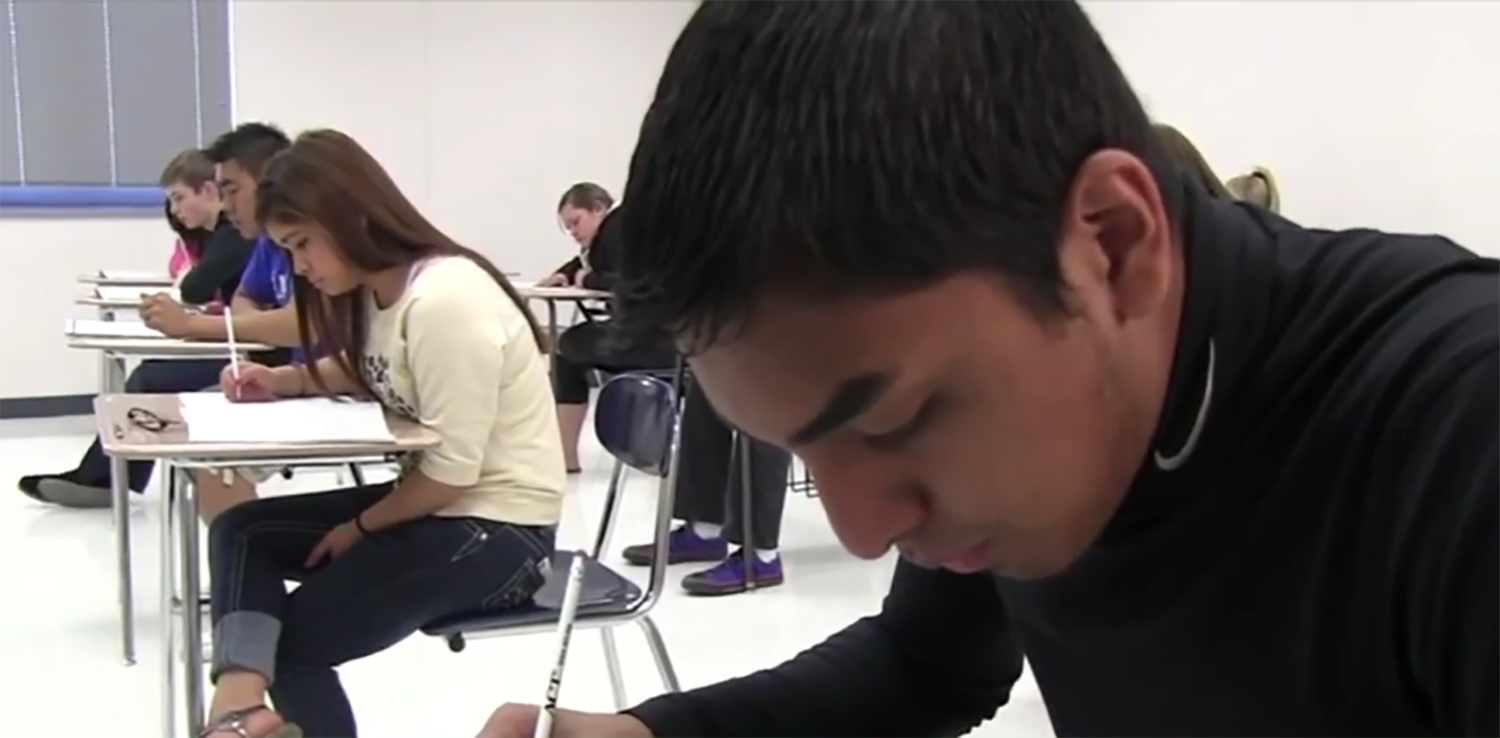The Value of Membership
Members tell their stories of why they value OEA membership. By being a member of OEA, educators have the power to stand up for their students. OEA is an advocate for high quality public education for all students.
October 2017 Ohio Schools
-
- IN THIS ISSUE
- Supreme Court agrees to hear case that could take away freedom of working people to join together in strong unions
- Ohio Civil Rights Commission Rights Seeks Nominations
- 2018 Ohio Teacher of the Year Jonathan Juravich
- teaching post-Charlottesville, analysis of Ohio’s School Report Cards, and more
- IN THIS ISSUE
Moved recently? Contact the OEA Member Hotline to update the address on file at 1-844-OEA-Info (1-844-632-4636) or email, membership@ohea.org. Representatives are available Monday-Friday, from 8:30 a.m. to 6 p.m. | OhioSchools — Past Issues
![]()
![]() Oh Yes, We’re Social — Join the Conversation!
Oh Yes, We’re Social — Join the Conversation!
![]()
Is Revised RESA a Reason to Rejoice?
Part II of II: Teacher Perspectives on the Resident Educator Summative Assessment
Read Part I: My Marathon Swim Through RESA
 by Dan Greenberg, Sylvania Education Association
by Dan Greenberg, Sylvania Education Association
I’m getting to a place where I can look back nostalgically on twenty years in the classroom — back to the days when I was 22, teaching in Adelanto, California, and couldn’t get used to people calling me “Mr. Greenberg,” — a time when I rushed through my lunch in the teacher’s lounge, so I could go play pick-up basketball with the kids.
I don’t gloss over those early years of my career. There were plenty of challenges that made me wonder if I would be able to make it as a teacher.
However, I think the challenges facing today’s early career educators make mine seem laughable. And of all of today’s challenges that I am grateful I avoided, RESA (Resident Educator Summative Assessment) is at the top of the list.
When I graduated from Kent State in 1997, I took two Praxis tests to get my teaching license. That was it. I was official! As for additional requirements from the state, there was nothing more for me to do. As long as my principal was happy with my performance, I could continue teaching.
Compare that to today: a four year Resident Educator program with rules, and meetings, and videotaping, and student work samples, and on and on, all while young teachers are trying to get a handle on day-to-day lesson delivery. Wouldn’t it be better for kids if their teachers didn’t have to worry about the redundant RESA process?
I say redundant because these early career educators had plenty of tasks like RESA to complete during their student teaching experience. If they completed them satisfactorily then, why are they having to prove themselves to a testing company and the state once again?
Now I know that RESA went through an overhaul over the summer. For a while, some first and second year teachers were checking with me every day, hoping the whole program would be eliminated. But somehow — through a process that might best be communicated by a “School House Rock” cartoon — we ended up with a revised form of RESA that, among other changes, significantly cuts down on the tasks a third year RESA teacher must submit to the state.
Are my young colleagues and I jumping for joy? No. Not really.
Sure, we are glad to see a reduction in required tasks. Sure, we are glad that more of the RESA program is controlled at the local district level. We know it is a step in the right direction. However, it’s still a program that we see as mostly redundant and unnecessary.
For me, I see RESA changes like standardized testing changes. I’m glad the state has reduced the number of tests students must take, but do I think the state has fixed the problem of over-testing students? Absolutely not.
RESA is still a burden on local school districts. The cost to my district, just to facilitate year 3 of the Resident Educator Program, will be $15,000 this year. That may not be a huge percentage of our budget, but it is one more thing to pay for instead of other programs.
RESA will continue to frustrate educators, whether for its lack of timely, detailed feedback on assessments, or its illogical requirements for teachers shifting between old and new RESA requirements.
For example: Last year a teacher failed one section of her third year RESA tasks. She failed the section because the student work she submitted was deemed illegible by the evaluator. By Ohio law, she could not resubmit a clearer copy. This year, according to the revised RESA process, instead of having to redo the task, she’ll get mentoring at the local level to help her in that area. However, the only reason she didn’t pass had nothing to do with her competency as a teacher. What kind of mentoring can she possibly receive to address this issue?
On the subject of mentoring, I realize that keeping the RESA requirement for local school districts to provide mentors is a positive thing. I can’t imagine what I would have done without a veteran teacher working with me almost every day, helping me with curriculum and lesson delivery.
My hope for new teachers is that the Resident Educator program continues to evolve into something that truly helps them grow as professionals, instead of something cumbersome and frustrating. I want them to be able to look back in 20 years, with a sense of nostalgia for the beginning of their career, not with a shudder and shiver down their spine, as they recall the hoops they jumped through to complete the Resident Educator program.
Learn more about changes to Ohio’s Resident Educator Program
Save
Save
OEA Charles A. Glatt — Human and Civil Rights Award

The Ohio Education Association recognizes achievements in human relations and related intercultural activities that impact children, communities, the educational process, and/or the United Education Profession by presenting the OEA Charles A. Glatt — Human and Civil Rights Award.
Dr. Charles A. Glatt was a professor of education at The Ohio State University specializing in human relations, affirmative action, and desegregation. He served as a presenter for many OEA workshops. On September 19, 1975, Dr. Glatt was shot and killed by an assassin while working on the desegregation plan in Dayton Public Schools.
This “Special Friend” Award symbolizes the commitment Charles Glatt had to humanity as well as the equality of educational opportunity for all.
The online nomination form must be completed in a single session, as you will not be able to save and return to it at a later time without starting over. In addition, it must be received on or before February 29, 2024. Late applications will not be considered.
TIP: Consider using this nomination worksheet as a guide prior to completing the online form. This guide can not be submitted in lieu of the online nomination form.
Please click here to see the rubric that the OEA Awards Committee will use to evaluate each submission.
→ Back to the Scholarships, Grants & Awards Home Page
Holloways — Human and Civil Rights Award

The Ohio Education Association recognizes achievements in human relations and related intercultural activities that impact children, communities, the educational process, and/or the United Education Profession by presenting the OEA Holloways — Human and Civil Rights Award.
The Holloways Award is presented to an individual OEA member for outstanding contributions to the promotion or execution of excellent human relations skills and interpersonal relationships as modeled by example.
Current association staff members are not eligible for this award.
The online nomination form must be completed in a single session, as you will not be able to save and return to it at a later time without starting over. In addition, it must be received on or before February 29, 2024. Late applications will not be considered.
TIP: Consider using this nomination worksheet as a guide prior to completing the online form. This guide can not be submitted in lieu of the online nomination form.
Please click here to see the rubric that the OEA Awards Committee will use to evaluate each submission.
→ Back to the Scholarships, Grants & Awards Home Page
Medicaid keeps many Ohio public school students healthy
by Becky Higgins, OEA President
 They have books, pencils and a backpack. But will Ohio’s public school students continue to have health care? Maybe or maybe not. It depends on what Congress and the President decide to do about Medicaid.
They have books, pencils and a backpack. But will Ohio’s public school students continue to have health care? Maybe or maybe not. It depends on what Congress and the President decide to do about Medicaid.
About 40 percent of Ohio children receive their health coverage from Medicaid. And in some Ohio school districts, that percentage is even higher. In the Dayton City Schools, 71.7 percent of students are on Medicaid. In Youngstown, 80.5 percent of students are enrolled in Medicaid. In Cleveland, it’s 72.7 percent.
Countless studies have shown that children who have access to regular, consistent health care do better in school. Medicaid is critical to ensuring that Ohio’s public school students have quality health care. Children who receive health care through Medicaid are more likely to graduate from high school, finish college, have fewer hospitalizations and enjoy better health as adults. Children who have Medicaid are less likely to drop out of school, engage in risky sexual activity, smoke, or be overweight. And Medicaid gives struggling families the security of knowing that their household budgets.
No child should be without health coverage and access to needed health care. Medicaid makes that possible in Ohio.
Medicaid is a lifeline that keeps a majority of children healthy in many Ohio counties. Medicaid improves academic performance and attendance. It helps ensure that children receive timely and appropriate care, and can help address behavioral issues including the impact of trauma that poses challenges to the proper learning environment.
In the 1980s and 1990s, researchers studied a group of students to determine the long-term effects of healthcare coverage on education. They found that a 10 percent increase in Medicaid eligibility for kids up to the age of 17 led to a smaller high school dropout rate, greater enrollment in college and a higher percentage who earned a four-year college degree.
Medicaid coverage not only improves children’s health and educational attainment it also enhances their earnings potential. People covered by Medicaid during childhood are healthier adults, with fewer hospitalizations and emergency room visits and higher incomes as adults, studies shows.
And while many districts struggle with financial challenges, Medicaid contributes more than $80 million to Ohio’s public schools to pay for needed services for students with disabilities. These are services that schools are required to provide and Medicaid offers a reliable funding stream to help pay for them.
The bottom line is that Ohio schools and taxpayers win when children in Ohio have Medicaid. In this time of uncertainty about what Congress and the President might do to change Medicaid, it is important that Ohioans let their representatives in Washington know that Medicaid should be protected.
Educators recommend Sherrod Brown for the U.S. Senate
COLUMBUS – October 6, 2017 – The National Education Association’s political action committee, the NEA Fund for Children and Public Education, and the Ohio Education Association’s Fund for Children and Public Education (FCPE) have endorsed Sherrod Brown for the U.S. Senate.
“Sherrod Brown is a proven champion of sound education policies and he has richly earned the endorsement of Ohio educators,” said OEA President Becky Higgins. “He understands that building the foundation of a strong economy starts in our public schools, and he is committed to ensuring that every child has access to a quality education. We look forward to his continued service in the US Senate where we are confident that he will serve the best interests of educators and students.”
The NEA Fund made the endorsement on the recommendation of OEA’s FCPE State Council which met last Saturday, September 30th in Columbus to interview US Senate candidates. The NEA Fund, a federal political action committee, provides financial support to pro-public education candidates without regard to their party affiliation.
The Ohio Education Association (ohea.org) represents 125,000 teachers, faculty members and support professionals in Ohio’s public schools, colleges and universities
Follow OEA @OhioEA on Facebook, Twitter, YouTube, Instagram, and Pinterest.
OEA Awards and Scholarships
 OEA is pleased to celebrate, honor, and reward the outstanding work of our members, affiliates, and individuals who have made special contributions to the improvement of public education. Awards are presented at the OEA Awards Banquet during the weekend of the OEA Spring Representative Assembly. For an application or nomination form, use the links below or write to: Awards Committee, Ohio Education Association, P.O. Box 2550, Columbus, OH 43216.
OEA is pleased to celebrate, honor, and reward the outstanding work of our members, affiliates, and individuals who have made special contributions to the improvement of public education. Awards are presented at the OEA Awards Banquet during the weekend of the OEA Spring Representative Assembly. For an application or nomination form, use the links below or write to: Awards Committee, Ohio Education Association, P.O. Box 2550, Columbus, OH 43216.
- RETIREMENT BOARD TRAINING SCHOLARSHIP
In the interest of supporting the best, most highly qualified OEA members in their preparation for election to Ohio’s retirement boards, the OEA is sponsoring a Retirement Systems Training Program. The International Foundation of Employee Benefit Plans (IFEBP), the largest educational association serving the employee benefits and compensation industry, will conduct the training program.
To encourage participation in the Retirement Board Training Program, the OEA will offer scholarships for members interested in pursuing seats on the STRS, OPERS and SERS Boards. These scholarships will cover the cost of training sessions required to complete a Certificate of Achievement in Public Plan Policy (CAPPP), as well as other related trainings and/or meetings. - JFK SCHOLARSHIP
The $4,000 John F. Kennedy Scholarship is presented each year to an OEA member who is a career teacher enrolled in a graduate-level program and in need of financial assistance. The applicant must be able to demonstrate a reasonable prediction of success in graduate work. - JEAN KERSHAW SCHOLARSHIP
The $2,000 Jean Kershaw Scholarship is presented each year to a student member currently enrolled in an undergraduate teacher education program in Ohio or a senior education student who has been formally accepted for graduate study in a master’s degree of education program at an accredited Ohio college or university. Applicants must be current members of the Ohio Student Education Association (OSEA) and the NEA-Student Program. Applicants must also be able to provide evidence of success in their teacher education program and of financial need. - MARILYN CROSS SCHOLARSHIP
The $4,000 Marilyn Cross Scholarship is presented to an OEA member and career teacher enrolled in a graduate-level program directly linked to his/ her current area of licensure, and must demonstrate a need of financial assistance and a reasonable prediction of success. - ESP AWARD
The Education Support Professional Award is presented each year to an OEA member whose activities reflect the contributions of education support professionals to public education. The recipient must have been a member of OEA for three years as of July 15 of the award year. Each OEA-affiliated ESP local association may nominate one of its members. The winner qualifies as the OEA nominee for NEA’s Education Support Professional Award. - OEA PEACE AND INTERNATIONAL RELATIONS AWARDS
OEA recognizes individual members and local associations who have furthered the cause of peace and international understanding by presenting the OEA Peace and International Relations Awards, of which there are two: The Paul Swaddling Award and The Peace and International Understanding Award. - OEA FRIEND OF EDUCATION AWARD
The OEA Friend of Education Award recognizes a person and/or organization whose leadership, actions, and support have contributed to the improvement of public education on a statewide and/or national level. Any member may nominate an individual or organization to receive this award by submitting the name of the candidate to the office of the OEA President, along with rationale and evidence supporting the nomination. - MEDIA AWARD FOR PUBLIC SERVICE
The Media Award for Public Service recognizes an individual and/or organization for a major contribution to the better understanding of the problems, progress, and needs of public education, or for programming of an outstanding educational nature. A member or local organization may nominate a candidate for this award. - OEA BLUE RIBBON ASSOCIATION AWARD
The OEA Blue Ribbon Association Award recognizes a local OEA affiliate for its demonstration of innovative problem-solving techniques and/or unique public relations and communication skills. This award comes with a monetary award of $1,000.00. - FISCAL FITNESS AWARD
The Fiscal Fitness Award recognizes local associations that have in place best financial practices. Applicants are required to submit a portfolio demonstrating evidence of meeting all of the listed criteria. Treasurers who have previously received the award judge the portfolios against the published criteria. The Fiscal Fitness Award is presented to winning locals rather than to the treasurers of the locals. The award includes recognition as an OEA Fiscal Fitness Award winner at the May 2021 Representative Assembly and on the OEA website, a plaque or certificate suitable for framing, and a grant for the local association to be determined annually based upon the amount budgeted by OEA. This amount represents the added value a fiscally fit local adds to the OEA.
Save
Save
Save
Save
Save
Save
Save
There’s still too much testing
Testing has long been misused to the point where it has lost any potential usefulness in the education of our nation’s children. Questions have been raised by parents and educators not only about the amount of testing that takes place, but also the developmental appropriateness. Then there’s the extent to which test results have created a very lucrative and profitable business market. See The Testing Industry’s Big Four and Pearson Rakes in the Profit.
Since at least 2011, there have been clear indications, cited by Dr. Linda Darling Hammond* in Getting Teacher Evaluation Right of significant errors in the use of Value Added Models in teacher evaluations. See http://bit.ly/getting-teacher-evaluation-right.
We do not need tests to tell us that poverty, inequitably funded schools, lack of access to technology, unaccountable charter schools, trauma, poor professional development, large class sizes and too much time on tests all negatively affect students.
More needs to be done to roll back mandatory assessments to a minimum federal level. That requires that we all advocate clearly and consistently with our elected officials using research and our personal experiences. The opportunity is here. Ask your local to conduct a testing audit. Adopt a resolution to limit vendor testing at the local level. Use all the tools at your disposal — phone calls, letters, emails, etc. — to persuade legislators, state board members and/or local board members on the issue. It’s going to take all of us.
* A Footnote – Dr. Linda Darling Hammond will be the keynote speaker, presenter and facilitator of a panel at the Midwest Symposium on Teacher Evaluation on September 30th at the University of Findlay. Consider attending and engaging further on this topic for change. Registration can be found at https://www.findlay.edu/education/graduate-programs/Midwestern-Teacher-Evaluation-Conference.
Watch OEA President Becky Higgins tell ABC6 what’s missing in Ohio’s report cards.
September 2017 Ohio Schools
- IN THIS ISSUE
- Educators and students at center of work to find solutions to Ohio’s growing opioid crisis
- The 2017 OEA Summer Academy
- Maysville EAs successfully organizes to become first Ohio local to win back salary schedule
- Legislative Update, Political Action, and more.
Moved recently? Contact the OEA Member Hotline to update the address on file at 1-844-OEA-Info (1-844-632-4636) or email, membership@ohea.org. Representatives are available Monday-Friday, from 8:30 a.m. to 6 p.m. | OhioSchools — Past Issues
![]()
![]() Oh Yes, We’re Social — Join the Conversation!
Oh Yes, We’re Social — Join the Conversation!
![]()



